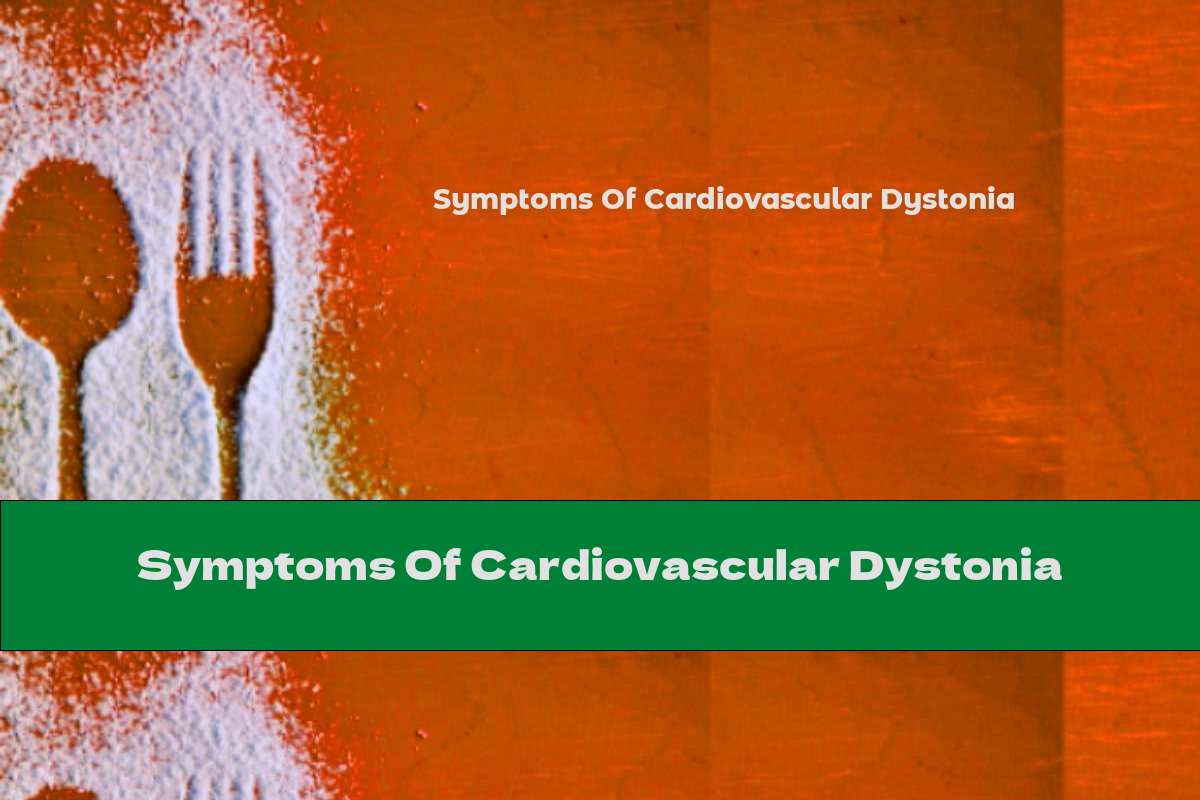Symptoms Of Cardiovascular Dystonia
 Author: Marko Balašević
Time for reading: ~2
minutes
Last Updated:
February 21, 2026
Author: Marko Balašević
Time for reading: ~2
minutes
Last Updated:
February 21, 2026

CHAPTERS (Table Of Contents)
Cardiovascular dystonia is a set of symptoms that appear as a result of a malfunction of the central and peripheral nervous autonomic system.
Cardiovascular dystonia is a set of symptoms that appear as a result of a malfunction of the central and peripheral nervous autonomic system. It also has the name of cardiovascular syndrome, neurocircular vegetative-vascular dystonia. This condition does not pose a threat to life, but it causes many other problems, such as gastritis, ischemia, bronchial asthma, heart failure, hypertension, and others.
Symptoms of the disease
With cardiovascular dystonia, many symptoms are observed, and the patient is not always able to say exactly what hurts him. Most often, the disease manifests itself:
- Aching, stabbing pain in the region of the heart, can be instantaneous or long-lasting. Occurs after stress, alcohol consumption, weather changes. It is accompanied by increased pressure, bad mood, anxiety, strong heartbeat, excessive sweating, tremors.
- Frequent shallow breathing, incomplete inhalation, a feeling of coma in the throat, dizziness. Such a person does not feel well in a stuffy room, he definitely needs fresh air.
- A feeling of a heartbeat, pulsation of the vessels of the neck, head, especially during stress or excitement.
- Asthenic syndrome, manifested by reduced work capacity, severe fatigue, chronic weakness.
- Periodic headaches, cold extremities, flickering of "flies" before the eyes.
- Temperature deviation, which can rise to 37.5 °C. At the same time, the temperature in different armpits varies.
- Vegetative crises in which shivering, sweating, and chills appear. Most often occur at night.
Treatment methods
First of all, you need to change your lifestyle. Also, the doctor will prescribe medicines that relieve the symptoms. Usually used:
- Sedative drugs, in the form of infusions, and decoctions (motherwort, valerian).
- Antidepressants with different active substances in the composition. They are selected individually for each patient.
- Tranquilizers in the form of tablets reduce anxiety and emotional tension. The dosage of such drugs must be strictly observed. With an overdose, side effects in the form of a depressed state are possible.
- Nootropics improve blood supply to the brain, and restore memory and concentration.
- Combined means normalizing the work of the vegetative system. Most of them are prohibited during pregnancy, glaucoma, and other pathologies.
Their use is indicated not every day, but only in case of poor health. Self-treatment is not recommended. Medicines are prescribed by a doctor according to indications. Otherwise, there may be complications of the disease and side effects in the form of allergies, the development of pathogenic microorganisms in the stomach, and others. The shelf life of the drugs is indicated on the packaging.
Related Articles
- Nutrition Strategies for Managing Muscular Dystrophy Symptoms
- Nutrition and Gastroparesis: Causes, Symptoms, and Dietary Recommendations
- Nutrition and Fibroids: 7 Herbs to Manage Symptoms
- Herbs for Fibroids: Natural Remedies to Manage Symptoms
- Vitamin B6: Importance, Sources, Benefits, and Deficiency Symptoms
Top Nutrition Articles Today
- . The Latest Food Pyramid: A Guide to Balanced Nutrition
- . Nutrition Guide: Importance of Food Pyramid, Meal Planning,...
- . The Role of Hydrochloric Acid in Digestion: A Comprehensive...
- . Libre2 Sensor Reset: Extending the Life of Your Glucose Sens...
- . The Power of Chalk in Nutrition: Benefits, Recipes, and Tips
- . All You Need to Know About E471 in Food: Functions, Foods, H...
- . The Essential Macronutrients of Beans: Protein, Carbs, Fiber...
- . The Nutritional Benefits of Quail: A Protein-Rich Superfood
- . List of Foods that Contain Carrageenan: A Guide to Avoiding...
- . Ascorbyl Palmitate: Benefits, Uses, and Precautions